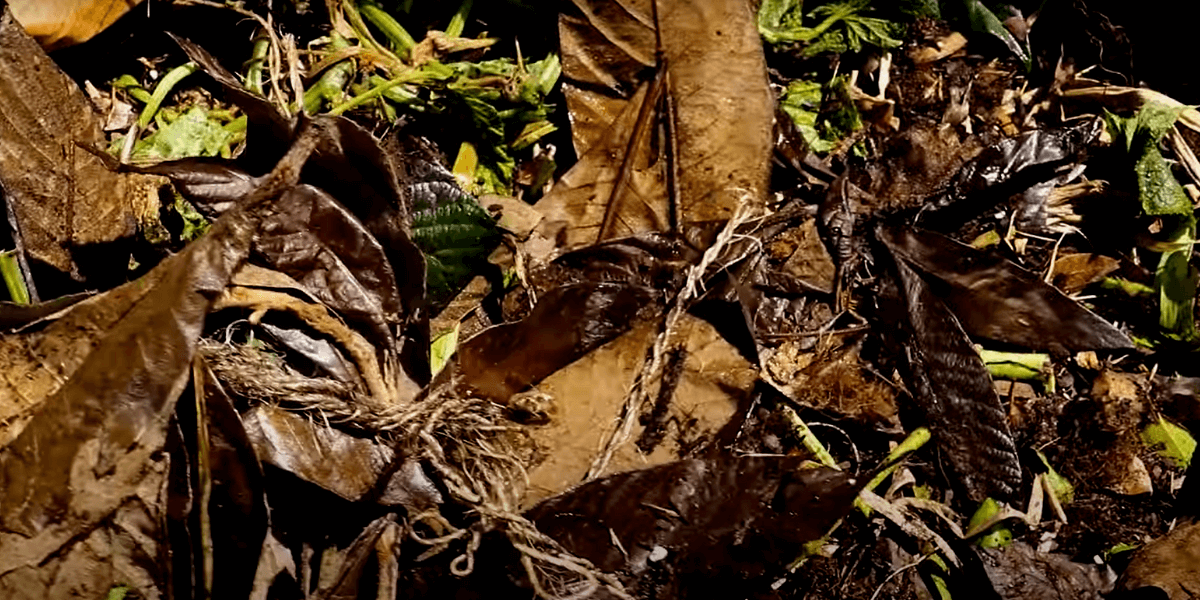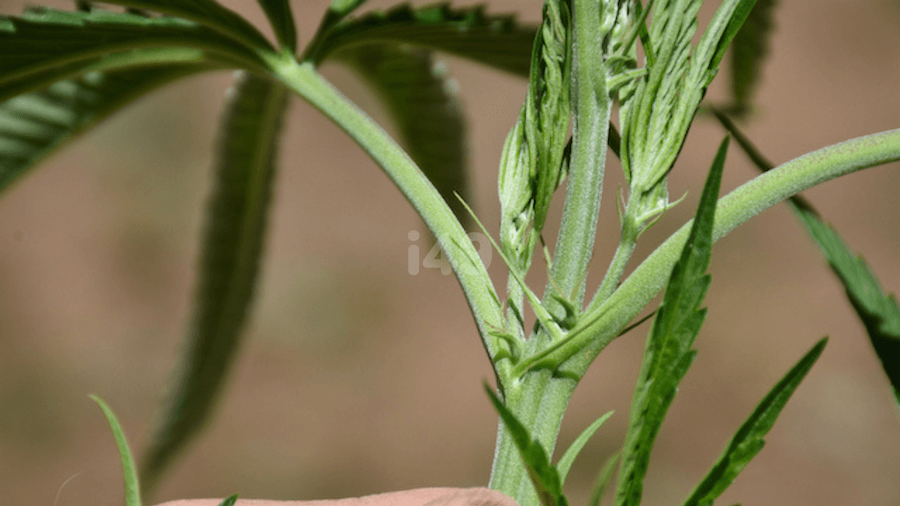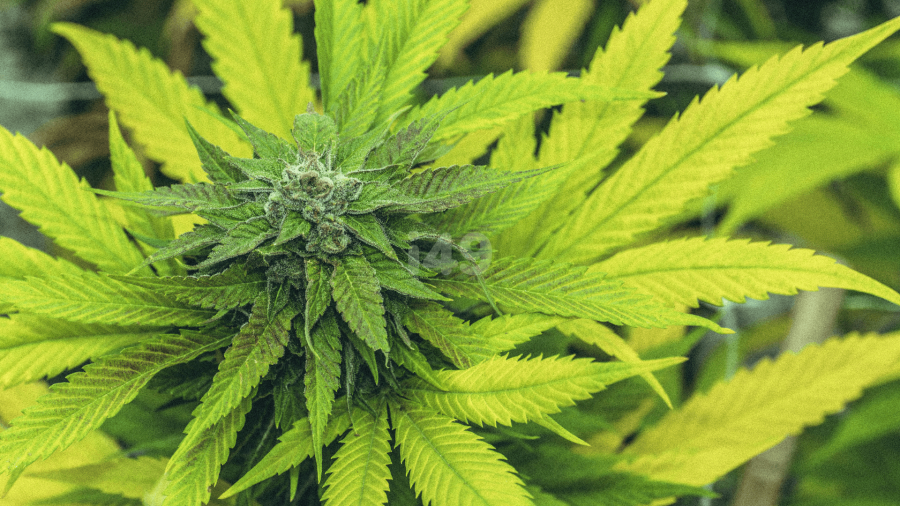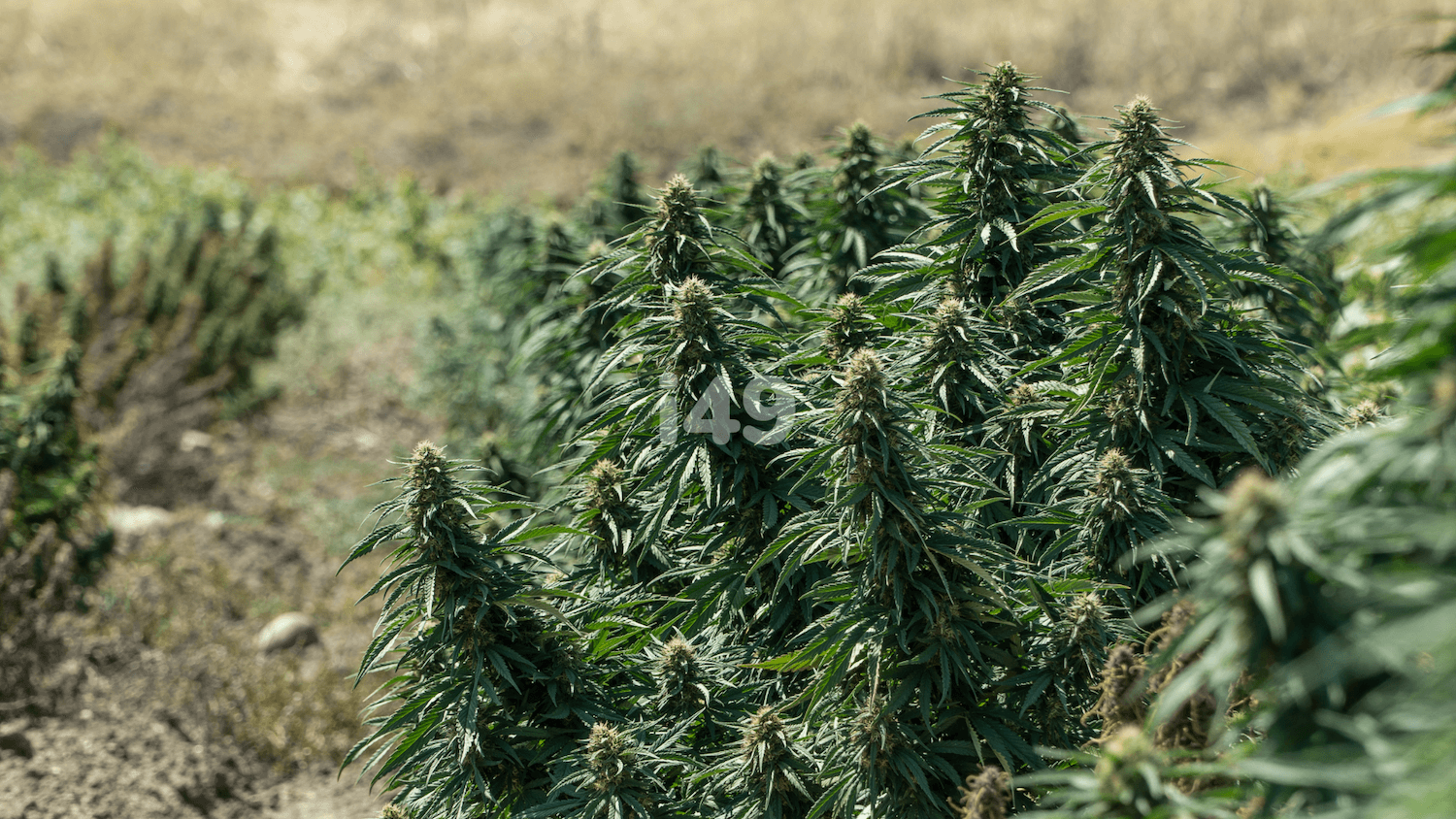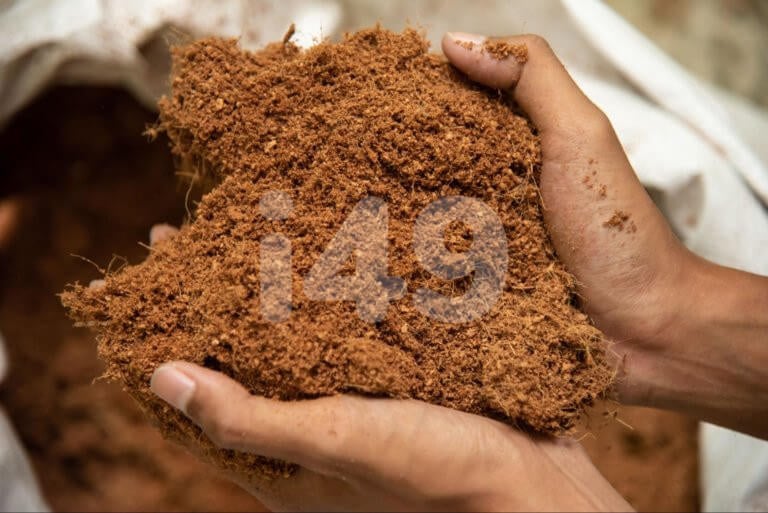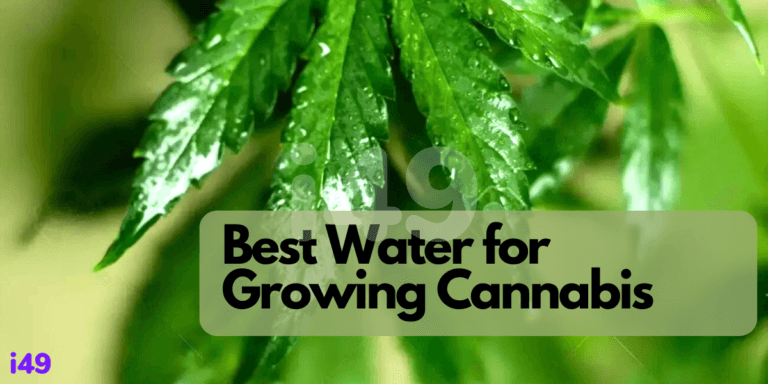Growing marijuana seeds in compost soil produce high-quality plants. But do you know how to make compost for your cannabis plants? Whether seasoned or new to growing marijuana seeds, you want the best cannabis soil for desirable results.
Introducing the decayed organic material to the soil is a reliable way to feed your plants nutrients. So, are you a first-time grower seeking knowledge on making the best compost for your marijuana? We’ll explain why you should make and use compost for cannabis plants for the best results.

Why should you use compost for cannabis plants?
Compost usually consists of animal products, leaves, and food scraps to fertilize and improve soil quality. It provides an easy way to grow healthy and happy marijuana seeds for beginners. The compost heap breaks down into rich soil with micro and macronutrients, enabling cannabis plants to thrive.
While compost can be a natural fertilizer, it also releases digestible nutrients without burning plants (also known as nutrient burn). Unlike chemical fertilizers, mixing compost into the soil increases oxygen and improves your cannabis plant’s respiration for optimal growth.

Pros and Cons of cannabis compost
Apart from the obvious cost-savings, DIY compost offers many benefits with only a few downsides. Here are a few compost pros and cons for growing cannabis:
Pros
- Significantly improves the soil quality with organic nutrients
- Improves the soil moisture retention and natural health
- Facilitates cannabis plant growth with select micro and macronutrients
- It promotes sustainability and increases your plants’ root depth
- It reduces the carbon footprint of your grow and resists pests
Cons
- Cannabis compost requires more space to process and store
- These natural nutrient boosters can emit an unpleasant smell
Making compost for weed at home
Creating a bin or container for organic materials is your first step to making the best compost for weed at home. You want to buy bins or build from scratch with scrap or recycled lumber. If you place the container in an uninterrupted shade, it produces microorganisms that speed up decomposition.
Compost breaks down into soil faster in containers with lids to produce marijuana nutrients. These bins allow easy access when sited on a natural surface like soil or grassland.
Getting an additional bin for your kitchen is an excellent idea as it can accommodate more food scraps. You can add kitchen remnants and wastes, from bread crusts to coffee grounds, tea bags, vegetables, egg shells, and peels.
What to use
Compost for weed comprises green and wilting materials. A heap with the right “brown” and “green” balance helps microorganisms live and thrive.
However, if one type exceeds the other when creating conventional or mushroom compost, the heap may become too dry. On the other hand, it may also become wet, smelly, and inefficient.

Ensure your compost heap consists of 50–75% brown and 25–50% green materials. The high nitrogen levels in green materials produce healthy fungi and bacteria. These microorganisms supply moisture and break down your marijuana compost. Below are a few green materials:
- Seaweed
- Animal manures (excluding cat or dog manure as they may carry diseases)
- Vegetable scraps and leafy plants
- Tea bags and coffee grounds
- Grass clippings
- Kitchen waste (egg shells and banana peels)
- Fruit scraps
Brown materials produce carbon to soak up excess moisture, and here are a few:
- Wood chips and sawdust
- Fall leaves
- Cotton fabric
- Cardboard
- Straw
- Pine needles
- Egg cartons.
What not to use
While most garden and kitchen waste belongs to the compost bin, some items may cause composting problems. When emptying food scraps and waste into compost bins, a few items to avoid include:

- Fish or meat scraps
- Charcoal ash
- Diseased plants
- Woods with preservatives
- Oils, fat, and dairy
- Pernicious weeds.
Strive for the right proportions
The right balance creates the perfect environment for microorganisms and bacteria to produce rapid decomposition. Before growing cannabis outdoors or indoors, strive for the right proportions between the compost bin’s materials.
First, find the right carbon-nitrogen balance. When you have too much nitrogen, the pile becomes stinky and slimy and requires more carbon. But when you have too much carbon, the pile becomes dry and materials decompose slowly.
The right proportion is neither too dry nor too wet but moist like a wrung-out sponge. Always keep your piles away from rainwater and direct sunlight to ensure proper decomposition.
Maintain your compost heap
Turning the compost heap with a pitchfork every few weeks is excellent as it ensures adequate ventilation. If the pile contains excess water, soak it up with mulched, chopped, or dry leaves and shred materials into small pieces. But regularly turning the kitchen or garden organic refuse pile can slow the decomposition process.
A compost heap with proper air circulation can be ready for use after 6 to 24 months. While the required period may be long, the best compost for cannabis often produces healthy crops. You can expect high-quality flowers for planting cannabis with well-maintained organic materials.
You can also speed up decomposition by adding accelerators like coffee grounds, grass clippings, and worms to the organic waste. There’s a wide array of commercial compost starter kits and accelerators containing all the right ingredients to speed up the process.
Using worms in composting
Converting kitchen waste into formidable compost with worms is an excellent option for many gardeners. Worms love eggshells, tea bags, coffee grounds, and fruit and vegetable scraps. So adding compost into a worm bin with two compartments ensures quick decomposition to produce marijuana nutrients.

You can collect the refined compost by unlocking the lower compartment. While conventional compost uses microorganisms, worm compost relies on these invertebrates.
The worm compost requires a pH between 6.5 and 7 and a temperature between 18–25°C with regular moisture level monitoring. Worm decomposition improves the soil condition and nutritional value but does not replace the conventional composting process.
How to use compost for growing cannabis
So, the conversion process has come to fruition, and your pile of garden and kitchen waste is nutrient-rich. It’s time to add nutrients to the soil and boost cannabis plants’ health and yields. Below are the best ways to use these bottled soil amendments for growing cannabis:
Use as a compost tea
Compost teas are liquid with compounds that can replace solid organic materials. This nutrient-dense tea contains soluble nutrients weed growers can feed cannabis plant roots. An aquarium pump and buckets of water are some of the tools needed to create compost tea.

Dr. Elaine Ingham created the compost tea recipe for improved soil quality. Ventilate the water to remove chlorine and add two spoons of humic acid solution before introducing a half cup of kelp. Add 2kg of compost and mix before adding to the soil.
Dilute the mix with water and foliar feed cannabis plants the compost tea for the flowering stage. Also, you can apply it to the soil with a watering can or sprayer. Lastly, keep this tea handy to improve nutrient deficiencies in cannabis plants when they arise or use it as a fertilizer.
Use as a super soil base
Super soils ensure cannabis plants grow healthily and efficiently by suppressing pests and diseases. So, compost as a soil amendment will improve cannabis plant nutrition and ensure optimal growth.
If you want massive yields from cannabis seeds, use the nutrient-rich compost as your soil base. Lastly, it can improve the soil mix as it helps the soil retain moisture.
Cannabis composting problems
Excess moisture and dry pile challenge farmers growing marijuana with compost. Pests and temperature are other cannabis composting problems. So let’s discuss each more in-depth:
Excess moisture
Excess moisture in the compost heap attracts flies that could hamper weed plants’ growth. Excessive greens with high water content, like grass clippings, are common causes of wet compost. A damp pile creates a thriving environment for harmful microbes.
Remove excess moisture by turning the pile to absorb more air. Next, introduce more brown or dry materials to the compost for a balanced mix. For example, shredded cardboard, egg cartons, straw, and sawdust are brown materials that can soak up excess compost moisture.
Dry Pile
A dry pile occurs with excessive brown materials like cardboard and sawdust in your compost bin. The pile contains oxygen but insufficient nutrients, water, and nitrogen to produce bacteria. It stops decomposition due to the pile’s fungi and bacteria’s inability to grow healthy marijuana plants.
You want a compost bin with adequate moisture, so re-wet the heap with rain or ordinary water. Adding more green materials can improve your pile’s condition. Kitchen scraps like tea bags, banana peels, and egg shells are green materials to overcome dry compost.
Pests
You may have to deal with pests, even with proper nitrogen and moisture ratio. For example, fungus gnats, aphids, spider mites, stem rot, and black and green flies can damage your plant root. But, if you leave the compost heap unclosed, you may deal with mice, rats, bugs, and raccoons.
A great way to prevent pests from your compost heap is by aerating the pile and turning it once a week. Aerating the heap can minimize the odors attracting pests.
Temperature
Your compost pile should have a temperature between 140°F (60°C) and 160°F (71°C). You don’t want a lower temperature because it causes inadequate nitrogen. Also, a higher range can kill beneficial microorganisms.
Therefore, checking the pile temperature with a thermometer before planting weed is best. To fix low temperatures, you want to add nitrogen-rich materials like manure, kitchen scraps, garden weeds, and grass clippings. Next, stir the compost heap with a pitchfork to solve hot temperature problems.
Grass Clippings
While grass clippings are often in large quantities, do not add thick layers to the compost bin. The problem starts when you add excess clippings to the heap. Too many grasses will create a soggy mess due to their nitrogen and water content.
The thick layers can also lock in soil moisture, causing low nitrogen and affecting weed growth. Instead, create a balance of fresh to dry materials by sprinkling grass clippings in thin layers. After finding the proper balance, use the excess waste as fertilizer for bushes and trees.
Conclusion
By creating your own compost for your cannabis plants, you’ll improve the soil quality for excellent returns. Your marijuana plants can reach their full potential with nutrients and grow blissfully with these organic materials.
You’ll cherish the exciting flavor of adequately grown organic cannabis in compost soil. So whether you prefer buying bagged compost or getting your hands dirty, amend your soil with organic cannabis nutrients from i49 USA.

